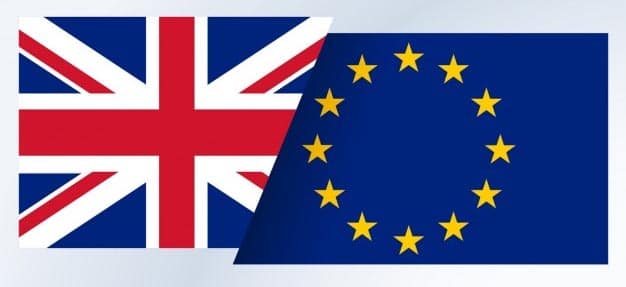Love it or loathe it, Brexit is coming. With less than a year remaining until the UK leaves the EU, opinions on its current and future impact are still as sharply divided as ever. While Brexit is a topic which is sure to bring out strong views – both for and against – its reality cannot be denied. So how is this monumental shift in our relationship with Europe going to affect the leisure and hospitality industries? Prophets of doom and those heralding a new dawn continue to trade arguments, forecasts and statistics. In truth, the results (as ever) are likely to fall somewhere in between the two extremes…
Broadly speaking there are three major factors which are likely to heavily influence how Brexit affects the leisure and hospitality industries: the effect on tourism, restrictions on the free movement of people and the general impact on the UK economy. While it’s impossible to accurately predict outcomes when we still haven’t seen the final shape of the UK/EU Brexit agreement, there’s no shortage of different statistics and expert opinions.

Brexit and Tourism: Wish you were here?
Perhaps surprisingly, statistics from the end of 2017 indicate that tourism into the UK actually saw a 4.6% increase from 2016 to 2017. A total of some 40.3 million overseas visitors flocked to the UK, even after the crucial June 2016 Brexit vote. For the leisure and hospitality industries, including bars, pubs, restaurants, cafes and hotels this upward trend in the face of our split from Europe, makes for comforting reading. With tourism being a major factor in many UK businesses, the fact that visitors to the UK haven’t been put off is a welcome relief from the worry that Brexit would see tourism levels crash. While the 2018 figures aren’t yet available it’s a comfort to many hospitality and leisure business owners that the trend appears to be upward. Conversely, hotels in London were reporting a significant downturn in their occupancy rates toward the end of last year. Whether this represents the black lining in the silver cloud of tourism remains to be seen.
Overall, there seems to be room for optimism that the crash in overseas visitor numbers that had been predicted has not materialised so far. For many bars and restaurants in popular holiday destinations such as London, Edinburgh and other major cities this is good news: tourists account for a significant proportion of customers, with any significant decreases meaning thin times ahead for many businesses.
Conversely, there may also have been a positive bounce back from native tourism. Fewer Britons travelled abroad last year, choosing instead to opt for “staycations” here in the UK. More people visiting parts of Britain from inside the country again is good news for the leisure and hospitality businesses.
Brexit and overseas employees: EU workers welcome?
Perhaps one of the most significant areas of concern for UK businesses has been the impact of Brexit on the availability of overseas staff seeking employment. Across Britain, European Union workers represent a significant proportion of employees in a number of sectors, most notably hospitality and leisure businesses. It’s already been widely reported that net EU migration into the UK fell sharply in the wake of Brexit. Farmers and related businesses have made no secret of the fact that they are finding it increasingly difficult to attract people from overseas, especially in crop picking and harvesting, where EU workers represented the majority of employees for many years.
So, with EU workers playing an important part in many serving, catering, cleaning and hospitality positions how has Brexit impacted recruitment? In some quarters, not well at all. In London especially, many employment agencies have confirmed that they are finding it increasingly difficult to fill vacancies for busy bars, restaurants and hotels. Following the Brexit vote many EU workers chose to leave the UK, presenting employers with a human resource issue they are still struggling with. However, there are signs that the proportion of British workers in such positions is starting to rise again with many confident that this and an uptake of people from outside the EU will eventually restore the status quo.
Brexit and the UK economy: Boom, bust or business as usual?
Uncertainty is never good for business. With the details of the final deal yet to be revealed the markets are still unsure as to how Brexit will impact the overall UK economy. However, while the exchange rate for the pound crashed the day after the Brexit referendum, the latest figures show that, in general, it has regained a lot of ground it lost against both the dollar and the Euro. With a thriving economy essential to the success of any business, both wages and higher rates of disposable income mean that customers have more money in their pockets to spend. So which way will the economy turn? This is perhaps the hardest question posed by Brexit for the hospitality and leisure venues – and the hardest to predict. Opinions range from financial Armageddon to a new golden age, depending very much on who you speak to. As stated at the start of this article, the answer is likely to fall between those two extremes, with both wildly optimistic and wildly pessimistic predictions being significantly less likely to come to pass than a more probable moderate impact.
Times of change bring opportunities, as well as challenges. For businesses in the leisure and hospitality, Brexit represents probably the biggest economic sea change to be encountered for many years. However, instead of a total disaster or an unparalleled triumph, the most likely outcome will simply be…change. Big changes perhaps, but UK businesses have become adept at evolving to take into account changing economic conditions and resources. Whatever, the outcome of the Brexit negotiations it should be remembered that people will still want to enjoy a drink after work or a meal with friends. Tourists will still come to the UK and people will still need the kind of job flexibility that the leisure and hospitality sectors offer. Whatever your views or opinions that much is likely to remain true after 29th March 2019.
